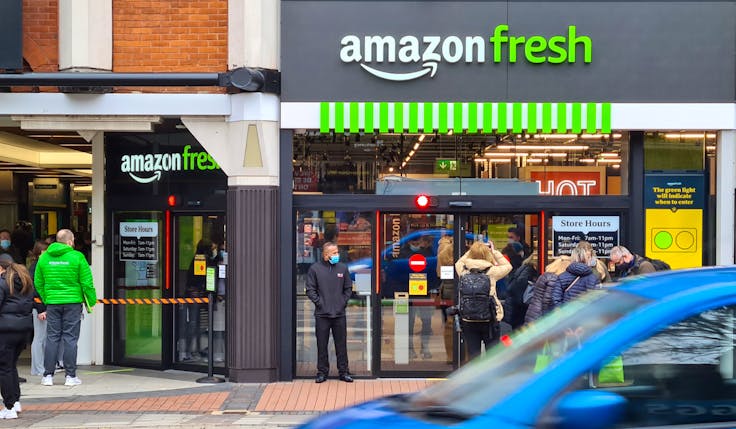How Aldo’s ‘unified commerce’ approach is helping it stay on top of consumer demands
While ecommerce has grown in importance for shoe retailer Aldo since the pandemic, physical stores remain critical. One way the retailer is bridging the gap is through the introduction of “omni-associates”.
 The pandemic has heightened consumer expectations online and offline, which is why shoe and accessories retailer Aldo has implemented a “unified commerce” approach.
The pandemic has heightened consumer expectations online and offline, which is why shoe and accessories retailer Aldo has implemented a “unified commerce” approach.
Speaking at the Econsultancy Future of Ecommerce conference this week, Aldo Group consumer experience vice-president Gregoire Baret said consumer expectations are “accelerating” as a result of Covid, so it’s incumbent on brands to keep on top of it.
“We need to keep up with the right level of service because the level of demand and the level of expectation from consumers is getting higher and higher,” said Baret.
To stay on top of consumers’ changing behaviours the brand has implemented a “unified commerce” strategy to help make the online and offline buying experience seamless.
The company did this by using technology connecting the customer experience across stores, ecommerce and sales associates, enabling it to follow-up to enquiries quickly regardless of whether they come from online or offline.
Because although online has grown in prominence since last year, bricks and mortar stores still have an important role to play, he said.
“We saw a really interesting growth and emotional reconnection with stores and they are performing pretty well right now,” Baret added. “Everyone thought everything would be all about the ecommerce, but in our case the reopening of stores really demonstrated how people are attached and love the store experience and are willing for human connection.”
To tap into this desire for human connection Aldo has made a number of sale associates “omni-associates” who can sell and offer advice online and offline. These “micro-influencers” are given the tools to promote the brand and engage customers, and are incentivised through a sales affiliate model.
Omnichannel retail isn’t new, but balancing channels is more important than ever“The biggest part is really moving beyond the usual store versus ecommerce approach. We have this very connected approach and a new breed of associates called omni-associates. They are really playing in between the lines and finding ways to leverage digital to support the overall company’s performance and adding motivation and incentives to do so,” explained Baret.
We need to keep up with the right level of service because the level of demand and the level of expectation from consumers is getting higher and higher.
Gregoire Baret, Aldo Group
Under lockdown, smartphones became the “centrepiece” of digital commerce for Aldo, accounting for 90% of web traffic and they have become the “primary way” for the brand to engage with consumers.
Many aspects of digital were upgraded under lockdown to keep consumers buying and engaging with the brand. Aldo improved delivery times, website access speeds and added payment options such as Klarna. These were “nice to have” features before the pandemic, but are fast becoming expected, he said.
“These are becoming something that consumers believe are totally normal, and there’s no consideration on the complexity in terms of the supply chain, cost or profit. They just believe this is something that should be there,” added Baret.
Meanwhile, he said keeping loyal customers engaged with the brand is key to experimenting with new digital concepts.
“The core parts of the business were supported by loyal customers, these were the ones that were attending some of our virtual events at this time [under lockdown]. It was a good reminder for us all about how critical, the loyal consumer is to sustain your business, even in the most critical times”.






